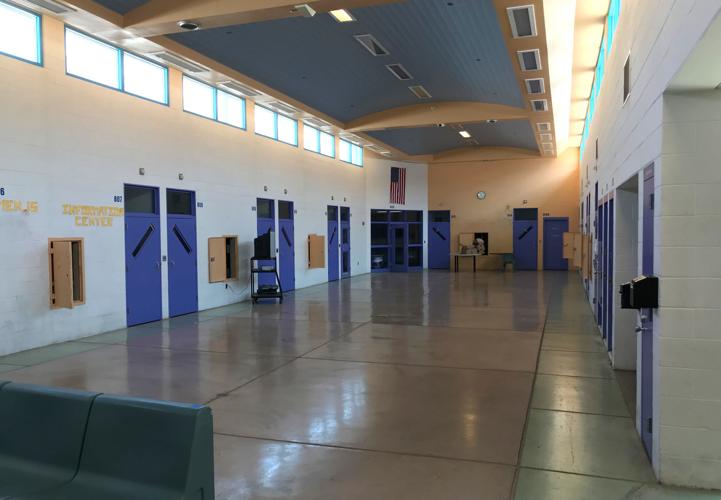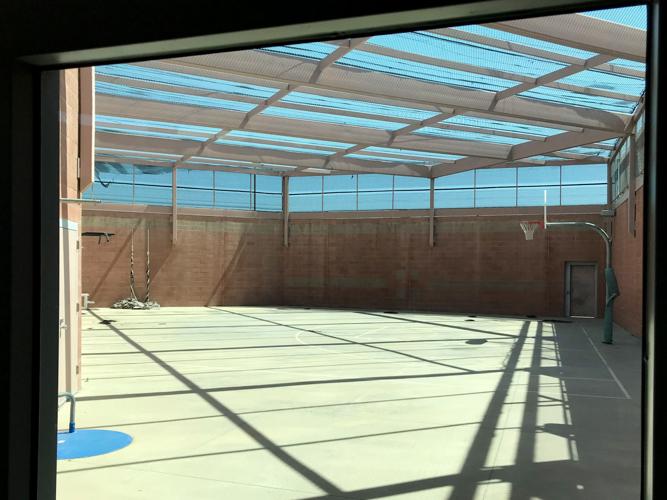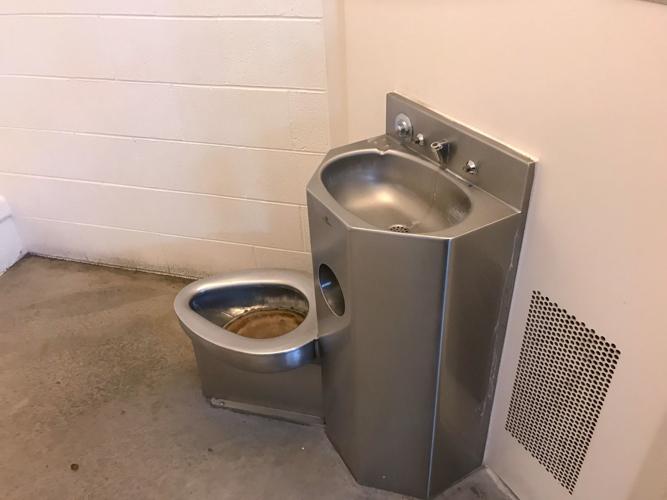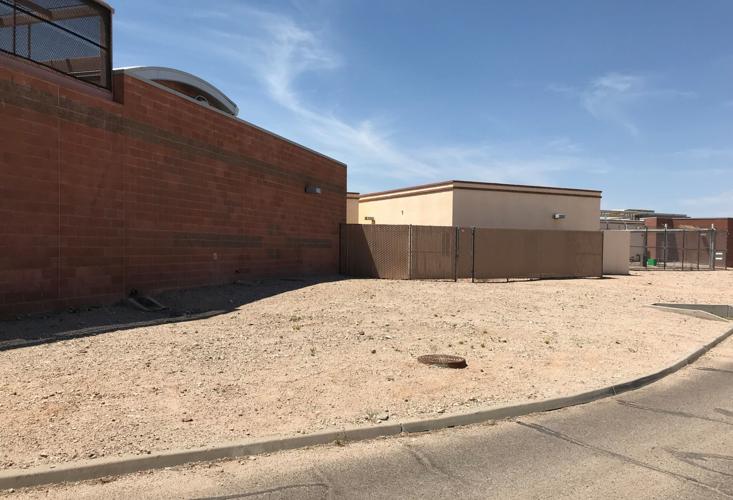Migrant asylum seekers from Central America are to be moved from the former Benedictine Monastery in midtown Tucson to the county’s juvenile detention center, officials are expected to announce today.
County officials confirmed this weekend that portions of the Pima County Juvenile Justice Complex that are not being used will be converted into a dormlike shelter for asylum seekers. The juvenile facility is located on East Ajo Way near South Kino Parkway.
How soon the move will be made was not immediately available.
There was a “moral imperative” to open a new shelter before the monastery closes as a temporary housing site for migrants at the end of the month, Tucson Bishop Edward Weisenburger wrote in a letter to county leaders.
Catholic Community Services has been running the day-to-day operations of the shelter at the former monastery since January.
There is no way to predict whether the flow of Central American migrants will continue in the coming months, but the community must be prepared, Weisenburger wrote.
He noted in the letter that community leaders have been searching for months for a new temporary home for migrant families.
“There is no sign that the DHS dro-poffs of asylum seekers, primarily from Central America, is going to abate. If the Tucson and Pima County community do not respond and provide aid to these desperate people then they will be left on the streets of Tucson to fend for themselves. We have no choice but to provide the much-needed aid, which is a moral imperative of our faith,” wrote Weisenburger.
County officials confirmed that three buildings inside the juvenile detention center could be used immediately. While the facility has the capacity for up to 300 people, it is more likely that Catholic Community Services will be able to house 150 to 200 people initially.
The move will not affect ongoing operations at the facility, including the 30 to 50 juveniles housed in another portion of the complex on any given day, county officials confirmed.
The plan calls for the diocese to lease a portion of the facility from Pima County. Maintenance and operating costs of the facility, however, will be paid by the county.
The county will apply for federal grants to be reimbursed for expenses, Pima County Administrator Chuck Huckelberry said. He specifically mentioned seeking funding from both Operation Stonegarden, which generally reimburses law enforcement for immigration-related expenses, as well as the recently passed $4.6 billion emergency aid package signed into law by President Trump that includes funding for humanitarian efforts.
Helping asylum seekers is not only the moral thing to do, but it also follows federal laws on helping those seeking asylum, the bishop wrote.
“As we make this request, we want to emphasize that the asylum seekers are in the United States legally and have been released by a DHS agency to Catholic Community Services or another partner in order to remain in the U.S. while their asylum claim is processed,” he wrote.
Tucson City Councilman Steve Kozachik said the announcement to lease the space at the county facility to Catholic Community Services doesn’t take away from efforts at the city to help others.
“This community, the city and the county, has a rich history of providing housing and other services for our homeless and veteran residents. We just approved a budget that includes millions of federal dollars to continue that commitment,” Kozachik said.
“The refugees we’ve been seeing at the monastery, over 11,000 since January, have presented another opportunity to show the compassion Tucson is known for. And the community has stepped towards the needs we’ve been seeing. Those commitments are not mutually exclusive at all.”
Kozachik concedes that putting the families inside the Pima County Juvenile Justice Complex doesn’t look good at first glance, but said it should not feel like asylum seekers are being kept in custody.
“People who are concerned about what the facility used to be used for need to understand that they’ve been staying in what was once a monastery. That does not make them nuns,” Kozachik said. “They’re going to stay in what long ago was a detention facility. That does not make them detainees.
“We will breathe new life into those walls through the changes we’ll make and re-create it into something with a totally new purpose and spirit.”
Asylum seekers will live in what can be most closely described as dorms, with no locked doors, 24/7 medical facilities, and commercial kitchen and laundry facilities, he said.
On the latter point, volunteers at the monastery were taking clothes home to wash, unable to keep up with dirty clothes, linens and blankets with the handful of washers and dryers in the aging building.
“Rebranding what long ago was a detention facility into a welcoming place of respite and refuge is what will make this facility an option we should embrace. Think of the message; not only do we no longer jail our youth, but the facility that was once used for that will be transformed into a welcoming, dorm-style, safe environment where the message is one of care and compassion,” Kozachik said.
Kozachik, who has recently opened the doors of his ward office to accommodate families when the monastery was at capacity, knows that a portion of the community will not support taxpayer dollars being used to help asylum seekers.
“It’ll take some city and county dollars to get it to that condition, but I’d much rather spend that money on transforming this facility than to spend it on taking care of street releases if that’s the only option we leave for ICE,” Kozachik said.
“One option is humanitarian. The other is not how any of us would want our neighbors to be treated.”







